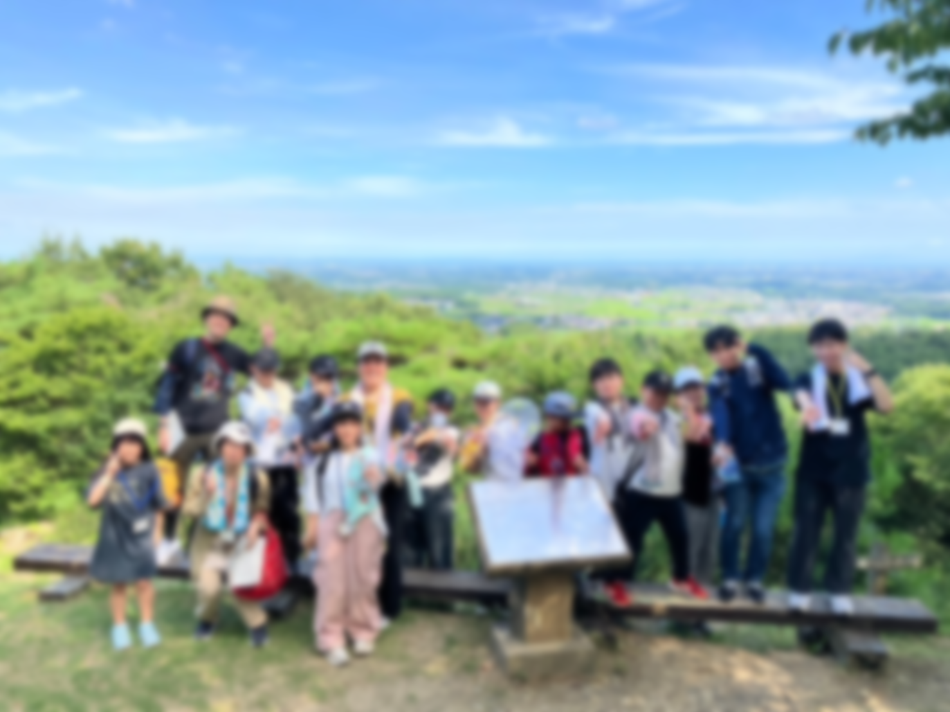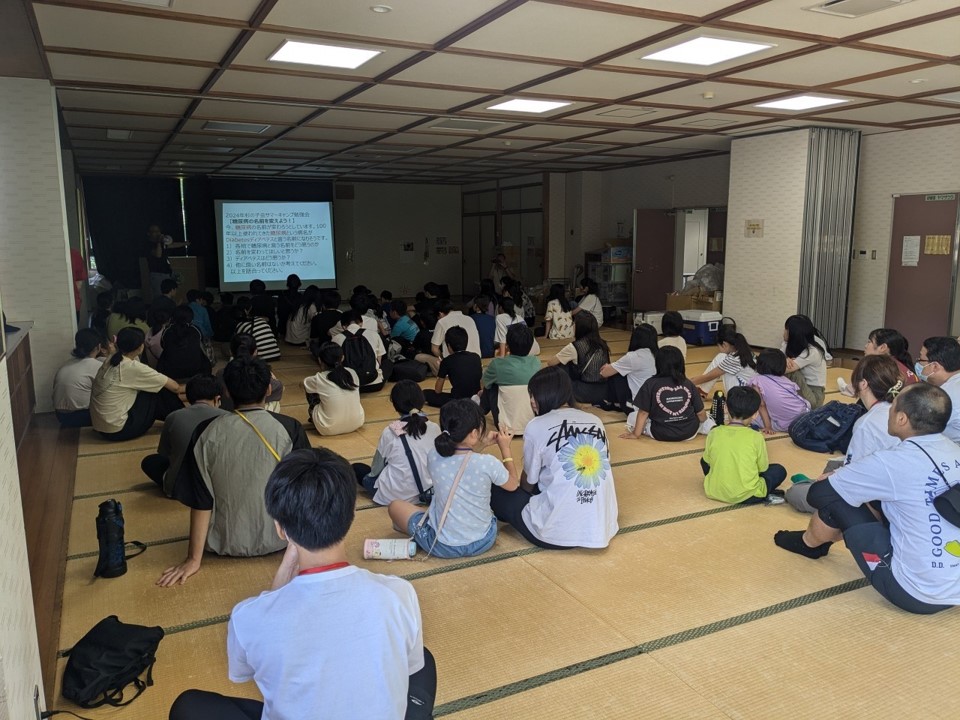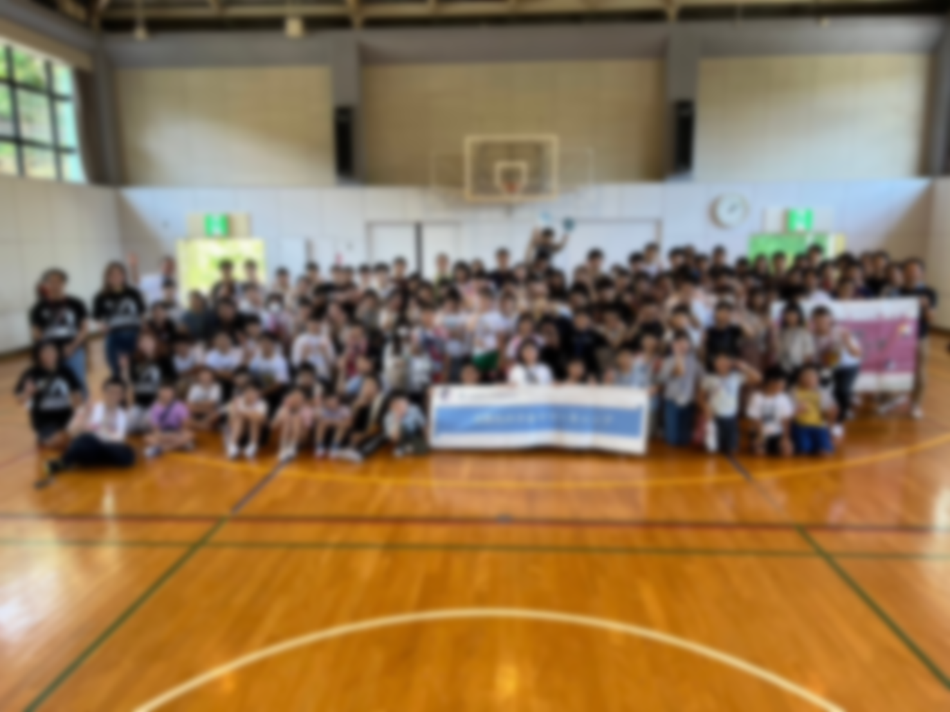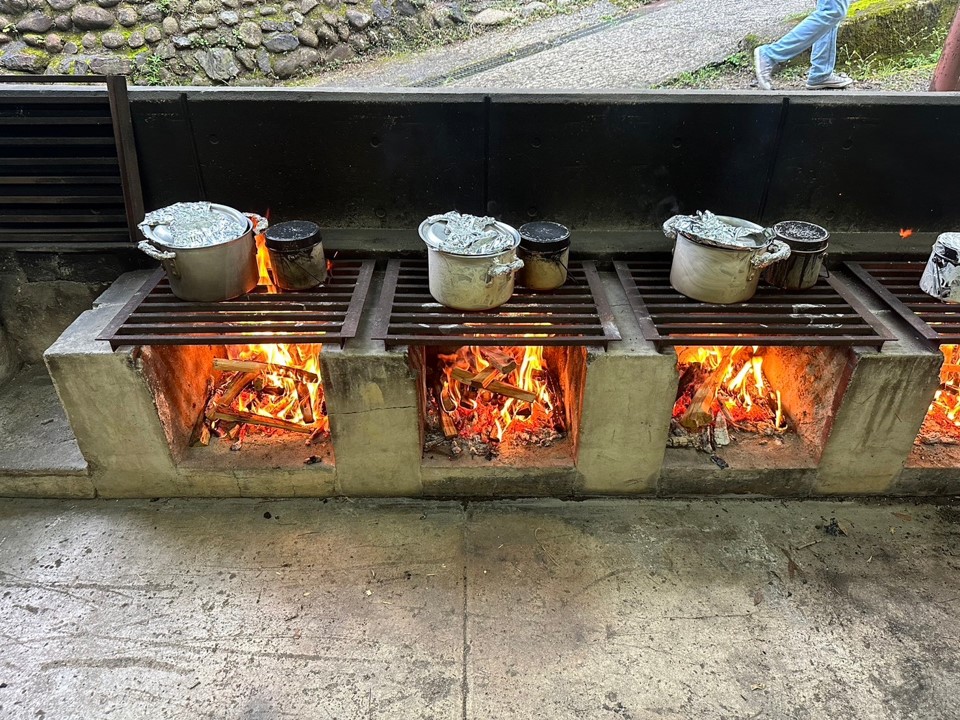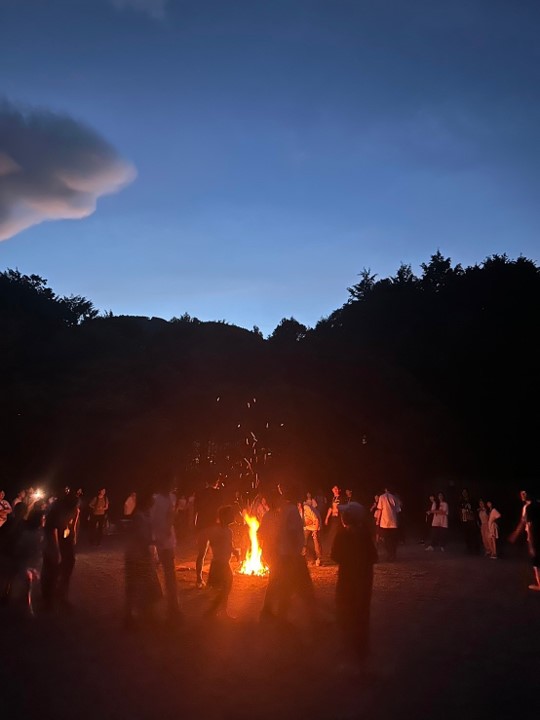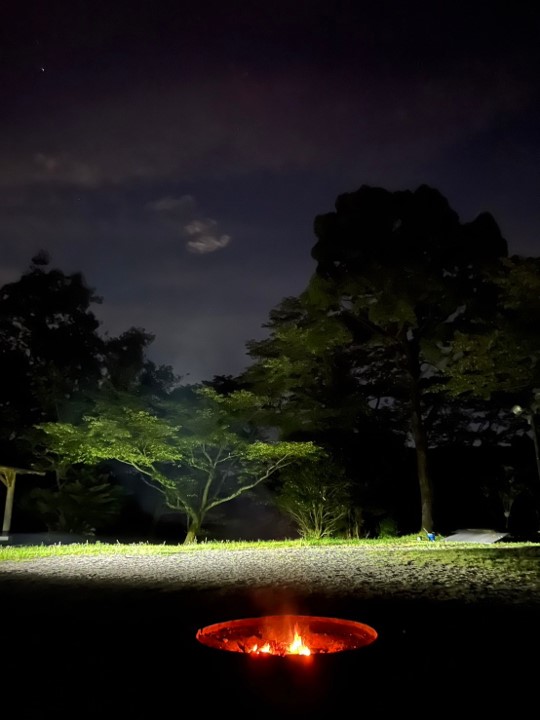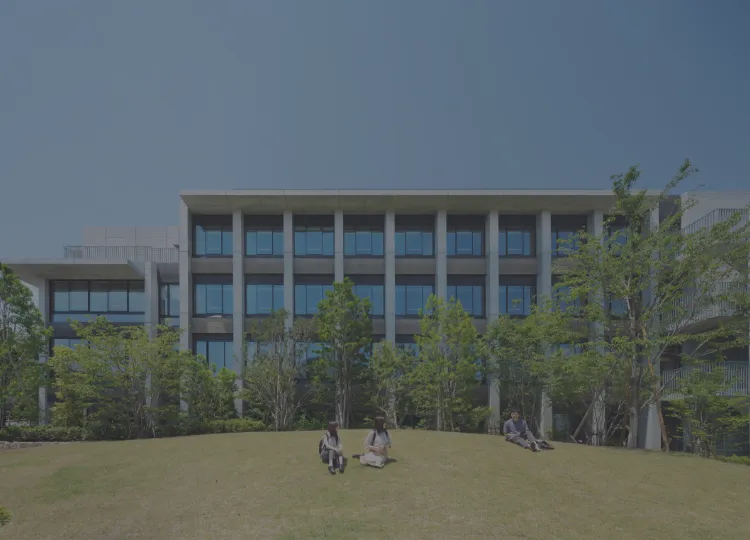
News & Press Releases
[Faculty of Health and Nutrition / Faculty of Global Nursing] Participated in an educational camp for children with type 1 diabetes
2024.08.18
- Undergraduate and Graduate School
- For current students
A summer educational camp organized by the Type 1 Diabetes Patient Association was held in Mie Prefecture for three nights and four days, and was participated in by Professor Komatsu and one fourth-year student from the Faculty of Faculty of Health and Nutrition, two fourth-year students from Faculty of Global Nursing, and three graduates from Faculty of Health and Nutrition.
Type 1 diabetes is a disease in which the function of pancreatic beta cells, which secrete insulin, the only hormone that lowers blood sugar levels, is significantly reduced, and autoimmunity is involved in its onset. The peak age of onset is said to be 10 years old, and in most cases, it is essential to start insulin replacement therapy at the time of onset in order to maintain life.
During the educational camp, the participating students worked as volunteer staff, forming small groups with two children, sharing meals and sleeping quarters, and also participated in various programs designed for children growing up with type 1 diabetes. The programs included group discussions on self-help behavior in times of disaster, disease name changes and stigma, events in the gymnasium, outdoor activities, and cooking. Through the programs, the students were able to deepen their understanding of the disease while also interacting with other staff, mainly from medical professions such as doctors, nurses, and nutritionists.
Many of the graduates who participate in this camp are registered dietitians who are in charge of nutritional management and nutritional counseling for people with diabetes at hospitals, and several of them participate as volunteer staff every year to further their own development. They support the camp as part of a nutritionist team in charge of food management for the entire educational camp (serving food in the cafeteria and outdoor cooking), checking the sugar content of meals, informing everyone, and preparing supplementary meals in case of hypoglycemia.
(Source: Faculty of Health and Nutrition, Faculty of Global Nursing)
